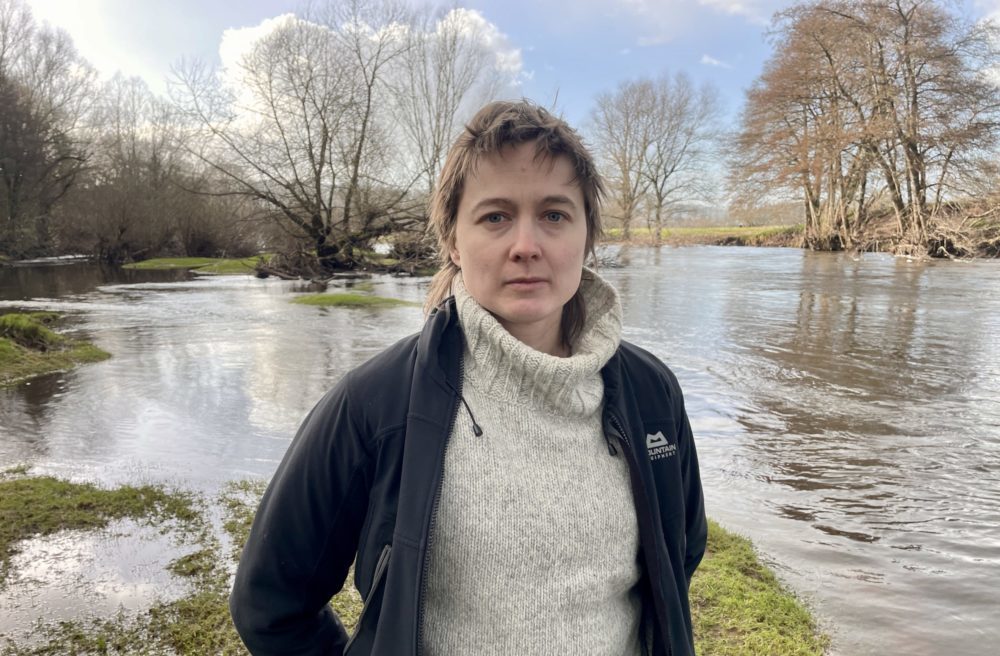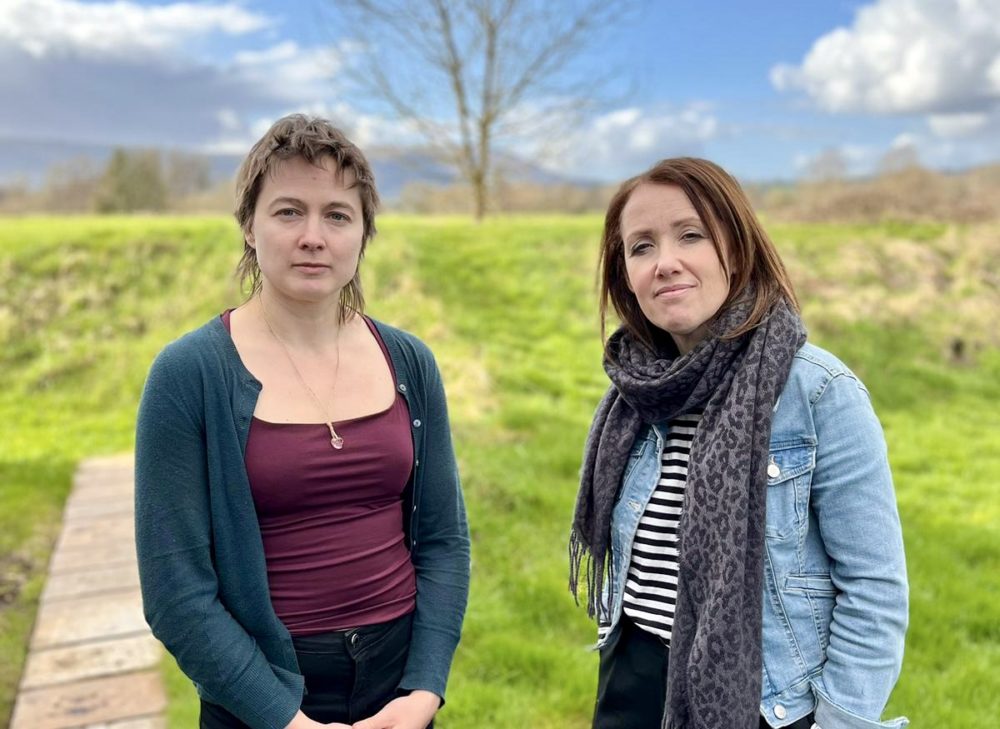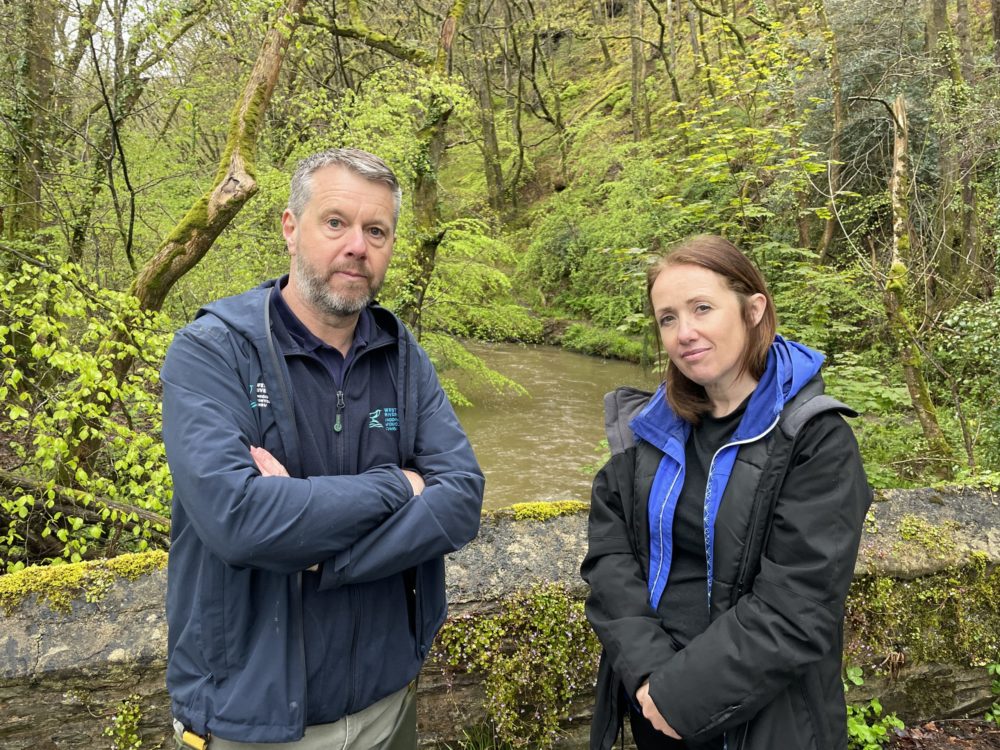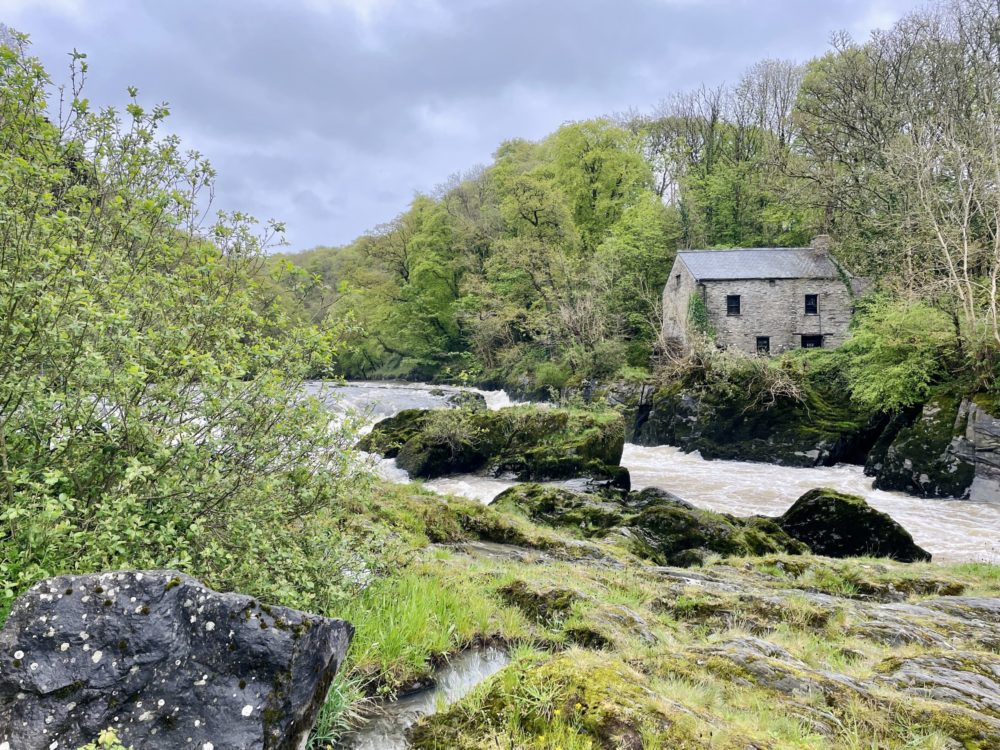Ex-employees speaks out against ‘bureaucracy’ and ‘inaction’ at Wales’ environmental regulator

Y Byd ar Bedwar, S4C
Two former employees at Natural Resources Wales have come forward to whistleblow about their experiences working for the environmental regulator.
Dr Emma Wiik, an ecological scientist, says inaction and bureaucracy at the organisation had a depleting impact on her life, while another former employee who recently left said it’s “demoralising” seeing their field not given priority and resourcing.
Natural Resources Wales (NRW) is an environmental regulator responsible for protecting the environment and tackling climate change. In 2023, its budget from the Welsh Government was £145million.
Speaking for the first time with S4C’s current affairs flagship programme Y Byd ar Bedwar, Dr Wiik says she felt she was “wasting” her “life’s purpose” at the organisation.
NRW say that real progress has been made in improving the quality of water, land and air over the last 30 years.
‘No point being there’
Dr Wiik, originally from Finland, chose to work for NRW’s climate change and then rivers unit because she “loves nature and wants to make a difference”.

But she says she soon realised there were issues within the organisation.
“I just realised how things just didn’t work, how things were at a standstill, there weren’t enough resources, and it was very, very difficult,” she said.
“It was the most insane level of bureaucracy I’ve ever come across.”
Dr Wiik said she felt there was “no point being there” [at NRW] after she became more and more frustrated with the organisation.
During her employment, she says she uncovered internal documents in which NRW admitted multiple failings including an acknowledgement that 80% of permitted discharge permits were not being monitored.
Dr Wiik also raised concerns about monitoring of nature, which is among Natural Resources Wales’ statutory obligations. While researching the condition of Welsh rivers, she said she was surprised to learn that some of the most recent data available for her to access dated back to 2007.
Problems on the ground
The programme also hears from Andrew Thomas, from West Wales Rivers Trust, who is frustrated with NRW’s response to pollution incidents.

While sympathetic with the public body’s staff, Mr Thomas said he has reported at least 10 instances of pollution over the last few months, but is “lucky” if these are attended on the same day.
“They’re missing in action – it breaks my heart,” he said.
Research by Y Byd ar Bedwar found that Natural Resources Wales did not attend more than half of incidents reported to them between January 2023 and January 2024.
On one occasion, a report of water pollution in the River Teifi in west Wales was not attended for 118 days.
Mr Thomas says that an increased presence by NRW staff, and tougher penalties, would deter polluters in the future.
Fall in prosecutions
Natural Resources Wales has prosecuted companies 215 times since 2016, with fines of up to £2.6million. Overall, the number of prosecutions has fallen over the years, while enforcement action such as ‘warning’ and ‘advice and guidance’ has increased.
Mr Thomas said: “You can talk and talk, but when someone is polluting through the winter, and through the summer, and nothing happens, well, nothing is going to change.”

NRW respond
Clare Pillman, the chief executive of Natural Resources Wales, rejected a request for an interview on Y Byd ar Bedwar, but said in a statement that real progress has been made in improving the quality of water, land and air over the last 30 years.
Clare Pillman, the chief executive of Natural Resources Wales, rejected a request for an interview on Y Byd ar Bedwar.Credit: Natural Resources Wales
Regarding the workforce, Ms Pillman said they “always go the extra mile for the people and places” and that “ensuring their well-being in the face of constant scrutiny and criticism is of the utmost importance”.
She added that they are committed to keeping people and nature safe from the impacts of environmental incidents and to enforcing the rules to minimise pollution. This includes continuing to regulate water companies, like Welsh Water, who they have downgraded from a three-star company, to two.
‘Do not shy from enforcement’
She added: “We are also strengthening the way we regulate to drive better performances from across the wider agricultural, industrial and water sectors. This includes introducing specialist officers on the ground, increasing compliance checks and using new data and intelligence tools to inform our work. We are also seeking additional powers to consider civil sanctions for a broader range of environmental offences.
“When the rules are broken, and when severe or deliberate damage is done to the environment, we do not shy away from taking the necessary and proportionate enforcement action to make sure the polluter pays.
“But like all public bodies, our resources are finite and we have to make informed decisions about how and where to focus our efforts to protect lives, livelihoods and the environment. While we will continue to be astute and innovative in how we use the resources we do have, we will need to prioritise those actions to ensure they have the best outcomes for people and for nature, and that they deliver the improvements to our environment that we all want to see.”
Concerns about NRW were presented to the Welsh Government, who are responsible for funding the organisation.
Huw Irranca-Davies MS, the cabinet secretary for climate change and rural affairs acknowledged that “NRW is stretched”.
He said the Welsh Government has given “an additional £18m” to the organisation in order to “deliver their statutory and regulatory functions”, and acknowledged that NRW wanted to “lift standards up across a wide range of issues that they deal with”.
But he said there was pressure on the entire public sector, and “if there was an ideal world and we would’ve been able to invest more in it, I would have done it”.
Y Byd ar Bedwar, produced by ITV Cymru Wales for S4C, will be available on Monday, 15 July, at 8pm on S4C, Clic, and BBC iPlayer.
Support our Nation today
For the price of a cup of coffee a month you can help us create an independent, not-for-profit, national news service for the people of Wales, by the people of Wales.






This is serious. NRW will be a statutory consultee on all large-scale renewable energy developments across Wales going through the DNS planning system. We have already heard of instances where NRW has stated it cannot respond to planning consultations on particular issues because of a lack of resources. There was one involving peat, and other birds. What will happen when the number of such applications gears up? We now have a Welsh Renewable Energy company announced, 16 energy parks proposed by one private developer and plenty of others coming onstream as well. We also have a nature emergency with biodiversity… Read more »
Who monitors performance in any public body? Audit Wales?
I don’t know about *any* public body, but in terms of the environment and law, there is currently the Interim Environmental Protection Assessor (with fairly specific remit for contact, see link). Earlier this year there was a consultation on the environment, including establishing the planned environmental governance body that will take over from the interim assessor.